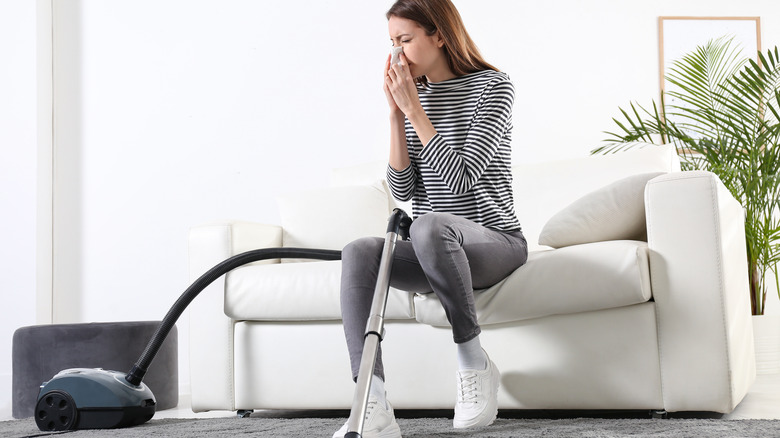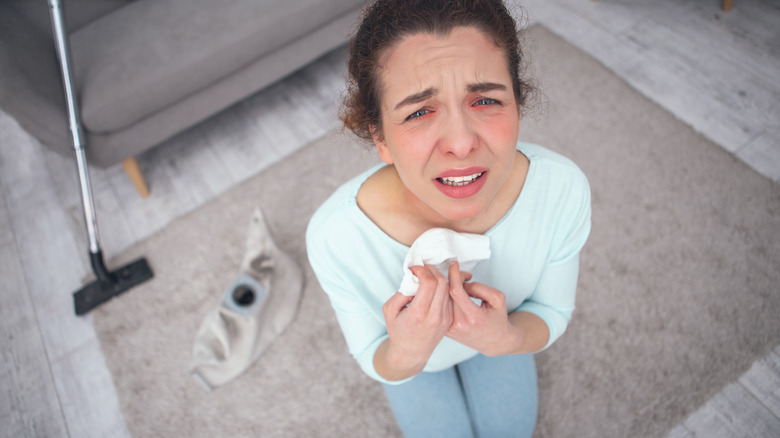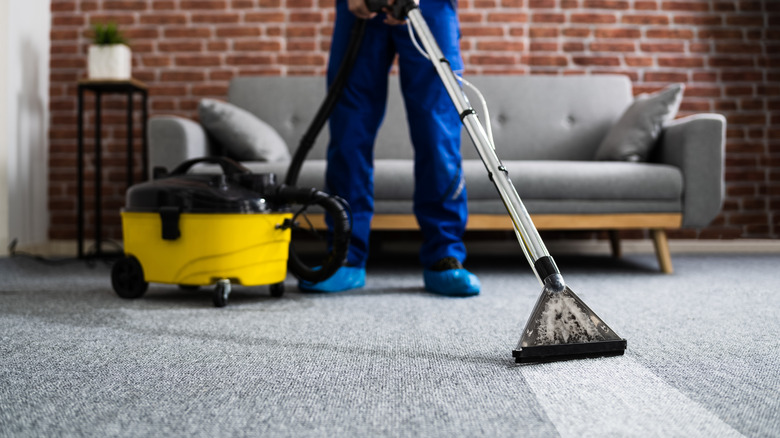3 Signs Your Carpet Is Causing Allergy Attacks
Anyone with carpets in their home knows just how much of a luxurious touch they add, along with the added benefit of creating a cozy and comforting home environment. Carpets are known to be a great design element and can help transform a space by giving it color, texture, and dimension.
Did you, however, consider that your carpets might be giving you allergies? That's right. According to the American Lung Association, carpets pose a number of threats to your health, explaining how carpets can trap harmful pollutants and toxic gas particles. While it does primarily come down to cleanliness — you might want to consider getting your carpets professionally cleaned to be on the safe side. Additionally, this knowledge may have you asking what signs and symptoms you should look out for, what exactly is causing these health risks, and what measures can you take to protect yourself and your family?
Look out for these symptoms
While carpet allergies can show up the way any other allergy would — itchy eyes and skin, sneezing, or a runny nose — they can also show up in three unexpected ways. According to Healthline, if you've been suffering from breathing difficulties, shortness of breath, or have a feeling of pressure in your chest, these could all be signs of a carpet allergy.
As ChemDry explains, there are a number of allergens in carpets, such as pet dander, pollen, tiny insect parts, dust particles, dust mites, and mold. Carpets seem to essentially be a breeding ground for a cocktail of pollutants that, especially in your home, you and your family can be exposed to throughout the day and even during the night if you have carpets in your bedroom. So, the chances of one of the many allergens listed being the cause of your breathing problems or other allergy-like symptoms are very likely.
What to do?
Don't be alarmed, however, as there are lots of precautions and steps you can take to combat these symptoms. National Design Mart says there are quite a few solutions, so at least one of them is bound to work for you. One such method they suggest is switching to a carpet made with synthetic fibers as its inorganic makeup doesn't encourage allergens. They also recommend going for a carpet with a short pile length, as these trap fewer particles. Furthermore, asking visitors to leave shoes outside, vacuuming regularly — at least once a week, and doing a professional steam clean (you can buy your own steamer if you wish) on your carpets once a year can help make sure your carpets are as clean as possible all year round.
If none of the above works, and your allergies persist, the Mayo Clinic recommends replacing your carpets with a flooring material that might be easier to keep free of allergens, such as hardwood or vinyl.


